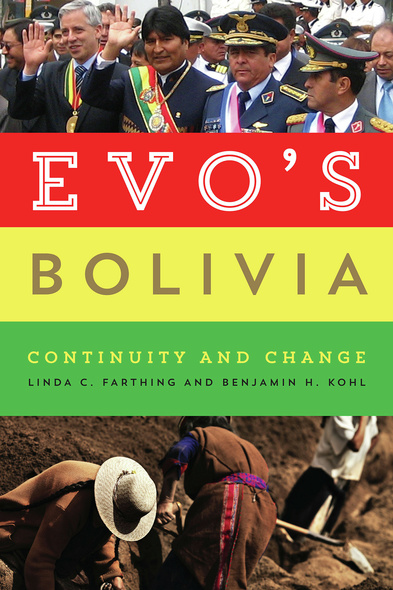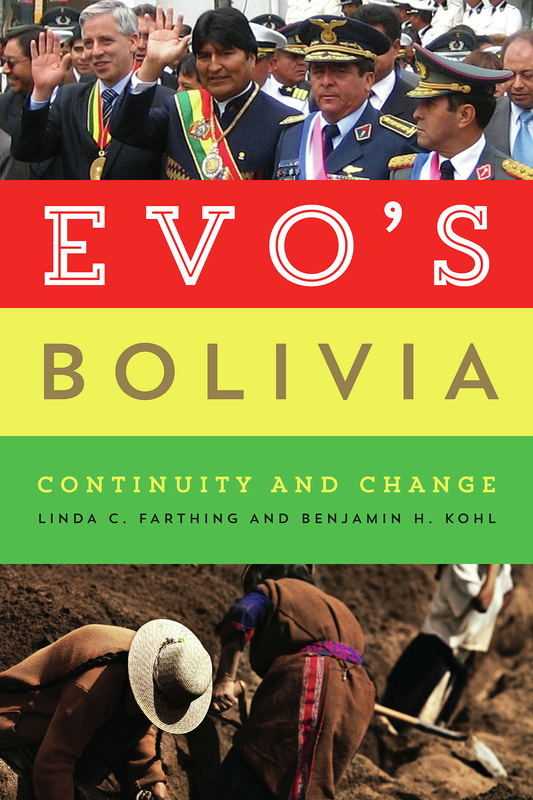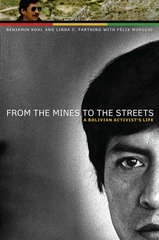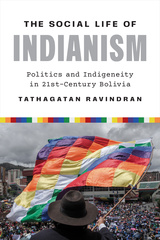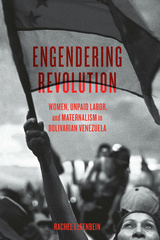Evo's Bolivia
Continuity and Change
In this compelling and comprehensive look at the rise of Evo Morales and Bolivia’s Movimiento al Socialismo (MAS), Linda Farthing and Benjamin Kohl offer a thoughtful evaluation of the transformations ushered in by the western hemisphere’s first contemporary indigenous president. Accessible to all readers, Evo’s Bolivia not only charts Evo’s rise to power but also offers a history of and context for the MAS revolution’s place in the rising “pink tide” of the political left. Farthing and Kohl examine the many social movements whose agendas have set the political climate in Bolivia and describe the difficult conditions the administration inherited. They evaluate the results of Evo’s policies by examining a variety of measures, including poverty; health care and education reform; natural resources and development; and women’s, indigenous, and minority rights. Weighing the positive with the negative, the authors offer a balanced assessment of the results and shortcomings of the first six years of the Morales administration.
At the heart of this book are the voices of Bolivians themselves. Farthing and Kohl interviewed women and men in government, in social movements, and on the streets throughout the country, and their diverse backgrounds and experiences offer a multidimensional view of the administration and its progress so far. Ultimately the “process of change” Evo promised is exactly that: an ongoing and complicated process, yet an important example of development in a globalized world.
In Evo’s Bolivia, Farthing and Kohl engage in a probing analysis of these pressing issues that are critical to the survival of our planet. The result is a successful, thoughtful, and compelling book that is written in a fluid and accessible style. The narrative is interspersed with interviews the authors conducted across Bolivia. As a result, the book achieves an admirable balance of providing an excellent entry point for those with little background in Bolivia as well as key insights for scholars and activists with a long history in the country.
Evo’s Bolivia should be read as the definitive history of what has arguably been the most significant decade in the history of that country, and in that of the Andean region.
Evo's Bolivia is, in many regards, the chronicle of the post-neoliberal transition period that I had hoped for. Farthing and Kohl present an incisive analysis of the contentious political moment of Morales's election and the years immediately after.
What is unique about Evo’s Bolivia is its breadth and accessibility. The text is inter-spersed with anecdotes and direct extracts from interviews; these combined voices provide a vivid and engaging window onto the process of change as it unfolds. The book makes Bolivia legible to the uninformed reader and would be excellent material for undergraduate teaching.
In their insightful evaluation of the continuity and change within Evo’s Bolivia from 2009 to 2014, two well-established country experts, Linda Farthing and the late Benjamin Kohl, have done precisely that. Thus it would be a mistake to dismiss this comprehensive, extensively researched and readable book as anything but excellent scholarship by two solidarity activists who are unafraid to be critical as well as thoughtful and balanced in their assessments of the positives and negatives of Bolivia’s first indigenous and social movements-dominated administration.
Linda C. Farthing is a writer and educator with twenty-five years of experience in Latin America as a solidarity activist, study-abroad director, field producer for films, and journalist/independent scholar.
Benjamin H. Kohl was Associate Professor in the Department of Geography and Urban Studies at Temple University. They are coauthors of From the Mines to the Streets: A Bolivian Activist’s Life with Félix Muruchi and Impasse in Bolivia: Neoliberal Hegemony and Popular Resistance, as well as numerous articles. They live in Philadelphia, Pennsylvania.
- Preface
- Acknowledgments
- List of Abbreviations
- Chapter 1. Why Bolivia? Why Now?
- Chapter 2. Land of Unintended Consequences
- Chapter 3. Capturing or Captured by Power?
- Chapter 4. "Reinventing" the State, Expanding Rights, and Navigating Dependency
- Chapter 5. Continuity and Innovation in the Economy
- Chapter 6. Living Well/Vivir Bien: Government Transfers, Health, and Education
- Chapter 7. Land and Territory: The Enduring Struggle
- Chapter 8. The Sacred Leaf at the Center: Reconceptualizing Drug Policy
- Chapter 9. The Path Ahead
- Notes
- References
- Index

